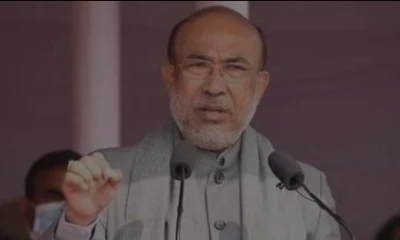In a significant move to protect history and culture, the Manipur Assembly unanimously passed a bill, introducing stringent penalties, including imprisonment of up to three years and fines of up to ₹2 lakh, for unauthorised renaming of places.
“The Manipur Government is serious about protecting our history, cultural heritage and the legacy passed down by the ancestors and forefathers,” mentioned Chief Minister N Biren Singh.
“We will not tolerate renaming and misusing names of places without consent and those guilty of the offence will be awarded with strict legal punishment,” he stressed.
The legislation, known as the Manipur Name of Places Bill, 2024, was enacted taking cognisance of instances where one community have been attempting to change the official names of locations primarily inhabited by the other, particularly after escalating ethnic tensions between the Meitei and Kuki-Zo communities.
The bill highlights the misuse of names for places by certain individuals or groups, which can lead to confusion in administration and disrupt social harmony. To address these challenges, a seven-member committee, appointed by the State Government, will be exclusively authorised to propose changes to place names.
Ethnic clashes in Manipur, especially between the Meiteis in the Imphal Valley and the tribal Kuki-Zo communities in certain hill areas, have claimed hundreds of lives and displaced many since last year.
During the conflict, allegations surfaced of both communities seizing vacant homes and properties of the other, fuelling more tensions.
The issue of renaming places has further inflamed the situation. For instance, Churachandpur’s name was changed to Lamka by many Kuki groups, reverting to its traditional name instead of the current one honoring Churachand Singh, a Meitei king.
Similarly, the locality of Paite Veng in Imphal, associated with the Paite sub-tribe of the Zo community, underwent a name change to Kwakeithel Ningthemkol by local residents.

















